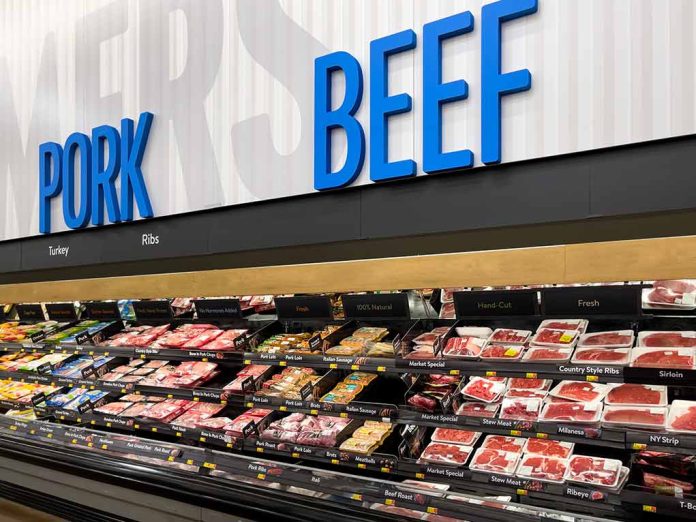
Canada’s ratification of the UK’s CPTPP membership will soon unlock billions in economic benefits while longstanding disputes over beef and cheese continue to challenge bilateral trade relations.
Key Takeaways
- Canada will introduce legislation this autumn to ratify Britain’s accession to the Comprehensive and Progressive Agreement for Trans-Pacific Partnership (CPTPP), a trade bloc with a combined GDP of £12 trillion
- The UK joined CPTPP in 2024, but awaits formal approval from Canada and Mexico to fully access trade benefits, including lower tariffs and fewer barriers in key sectors
- A joint task force will be established to enhance cooperation in technology and artificial intelligence while addressing persistent trade disputes over hormone-treated beef and cheese import levies
- UK Prime Minister Sir Keir Starmer will meet with President Trump to finalize a US-UK trade deal while participating in G7 discussions on global conflicts and security
CPTPP Ratification Promises Economic Boost
Canada’s commitment to ratify the UK’s membership in the Comprehensive and Progressive Agreement for Trans-Pacific Partnership represents a significant economic opportunity for both nations. The CPTPP, which includes Australia, Brunei, Chile, Japan, Malaysia, New Zealand, Peru, Singapore, and Vietnam, encompasses a massive trading bloc with a combined GDP of £12 trillion. While Britain officially joined the partnership earlier this year, it has been waiting for formal approval from Canada and Mexico to fully access the benefits of reduced tariffs and market access that the agreement provides.
The trade pact offers substantial advantages for British exporters through lower import levies and fewer barriers in key economic sectors, including financial services, manufacturing, and food and drink. Downing Street has described the potential economic benefits as “huge benefits” for British businesses looking to expand their international reach. The ratification process is expected to begin with legislation introduced in Canada’s parliament this autumn, marking a crucial step in strengthening the UK’s post-Brexit trade relationships.
Beef and Cheese Disputes Challenge Bilateral Trade
Despite progress on the CPTPP front, longstanding bilateral trade issues continue to present challenges for UK-Canada relations. Previous attempts to finalize a comprehensive free trade agreement have stalled over concerns regarding food standards, particularly the UK’s resistance to hormone-treated beef imports and disputes over cheese import levies. These issues mirror similar challenges in the UK’s trade negotiations with other partners, including the United States, where the British government has maintained firm “red lines” on food safety standards.
“The taskforce will also look to make progress on the wider UK-Canada Free Trade Agreement,” Downing Street announced, acknowledging the need to address these persistent obstacles to deeper economic integration. The working group represents a practical approach to resolving specific sectoral disputes while allowing broader trade cooperation to proceed through frameworks like the CPTPP. This balanced strategy reflects the complex reality of modern trade negotiations, where technical barriers often require specialized attention.
Strengthening Tech and AI Collaboration
Beyond traditional trade concerns, the UK and Canada are placing significant emphasis on cooperation in emerging technologies, particularly artificial intelligence. The two nations have agreed to establish a partnership strengthening collaboration between their respective AI institutes, recognizing the strategic importance of this rapidly evolving sector. Former Bank of England governor Mark Carney, who has played a key role in facilitating UK-Canada relations, highlighted the importance of this technological cooperation.
“Canada and the United Kingdom, of course, share history – we share values, we share governance,” Mr Carney stated, emphasizing the foundation for deeper cooperation. “Foundation of prosperity,” he added, underscoring how shared technological advancement could drive economic growth for both nations. This focus on AI aligns with broader global trends prioritizing leadership in critical technologies with economic and security implications.
Global Leadership and Security Agenda
The trade discussions are taking place against a backdrop of broader diplomatic efforts, with Sir Keir Starmer set to attend the G7 summit in Kananaskis. The gathering will address pressing global challenges, including Middle East conflicts and the ongoing war in Ukraine, with Ukrainian President Volodymyr Zelenskyy expected to participate. The British Prime Minister aims to promote restraint and de-escalation in various conflict zones, demonstrating the UK’s commitment to global stability alongside its economic objectives.
“For years, we’ve worked together as Commonwealth members, as independent, democratic sovereign countries, working alongside each other on issues of security, defence, trade, the economy, you name it,” Sir Keir emphasized, highlighting the multifaceted nature of UK-Canada relations. Additionally, Sir Keir plans to meet with President Trump to finalize a US-UK trade agreement, further expanding Britain’s network of post-Brexit economic partnerships. These simultaneous diplomatic initiatives reflect the UK’s strategy of strengthening relations with traditional allies while securing new trade opportunities.




